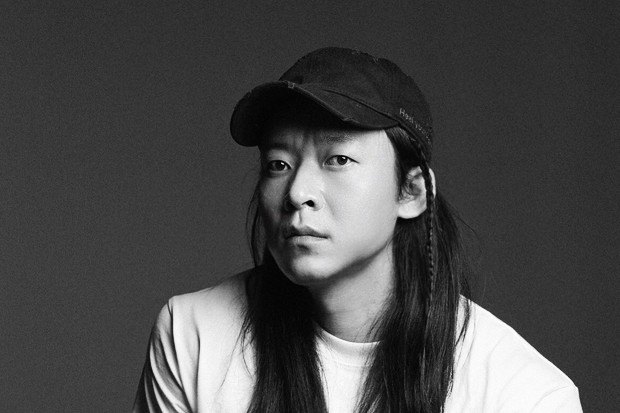LOCARNO 2023 Out of competition
Ran Huang • Director of What Remains
“It's not about the truth, but about my understanding of it”
by Teresa Vena
- The Chinese director gives us the low-down on his unusual serial-killer story and his encounter with the Skarsgård family

Actor Stellan Skarsgård received the Leopard Club Award at this year's Locarno Film Festival. To mark the occasion, the gathering screened his newest project, the thriller What Remains [+see also:
film review
trailer
interview: Ran Huang
film profile] by Chinese director Ran Huang, out of competition. We spoke to the director about his encounter with the Skarsgård family, his approach to the story… and fortune cookies.
Cineuropa: How did you learn about this story in the first place?
Ran Huang: I came across the real-life events by accident. After my first short film, which was screened at Cannes, I was approached by a producer to make my first feature-length work. So I searched for a topic that would interest me enough. There was a feature story in a magazine about this case. I did several months of research, and slowly I saw that it could become a film.
What fascinates you about it?
While reading about it, I was amazed by the context. I kept asking myself, “What might be the truth behind everything?” Then, the deeper I got into it, the more I thought that maybe it's not the truth that is important, and so I turned towards the people involved in it. You stop pointing your finger. I wanted to focus on the relationship between the characters. I wondered about what trust means and how we trust each other. Furthermore, I began to discover these special areas of human beings that you can't really define in black and white. Once I started to look at those, I thought I could begin to understand what may have happened. In Sweden, everybody knows about it; it was some kind of social event, and everyone participated in making this so-called serial killer. I could have depicted the whole bigger dimension of it, but I decided to focus on a smaller scale. And a lot of it is fictionalised in the film, since it's difficult to find out about it because people refuse to talk. And even if they talk, they try to picture something else. So it's not about the truth, but about my understanding of it.
Why did you decide to give the audience the hint that it's based on a true story at the beginning already?
There is no complicated reason for that; a lot of films do it. I think it's an easy way to step into the story. In our case, you might find it so bizarre that it might give you a good feeling to know that part of it is true.
Did you talk to the protagonist's family or other people close to him?
No, I didn't. There are a lot of documents. I did a lot of reading and research; I looked into the psychiatric practices of the time in Sweden. But as for the people related to the story, I didn't want to be misguided. I wanted to concentrate on my feelings for the characters. I wanted more freedom while writing the script.
How did the connection with the Skarsgård family arise?
I know it's a bit of a cliché to say so, but it seems like it was meant to be. I wanted to meet a Swedish person in the film industry to be able to talk about the possibility of making the film. I asked around, and it was Stellan who was introduced to me. We met and started to talk about it. In the end, we became like a family.
What was it like to have a father and son play the two antagonistic characters?
It was very interesting to find out how each of us understood the story. We were open to a lot of things happening in the process. I felt we had a lot of acceptance for each other.
Where did you shoot, exactly?
We shot in Finland; it was accidental. After my first draft, I began to think of the visual concept. I couldn't do any proper scouting, since we didn't have all of the budget in place by then. So I searched online and found a Finnish hospital, designed by Alvar Aalto, which became our main location. It was my dream location. Starting from there, we searched for other locations around the area.
Stellan Skarsgård’s character likes to go to a Chinese restaurant, and he is obsessed with fortune cookies. Why did you want to have this motif in the film?
Everyone might think that this is Chinese culture, but it's not. Nobody in China eats fortune cookies. The Chinese find it so foreign. I had my first fortune cookie in London. I like the fact that when you crack open the cookies, you discover the message. Sometimes you think it's bullshit, but sometimes you give it a second thought. I liked relating the character to it. It's a shortcut if you want to introduce a character. This old man doesn't know what is coming, and he has so many questions about his own life. Then he cracks open a cookie, and there is no message in it.
Did you enjoy reading this article? Please subscribe to our newsletter to receive more stories like this directly in your inbox.















